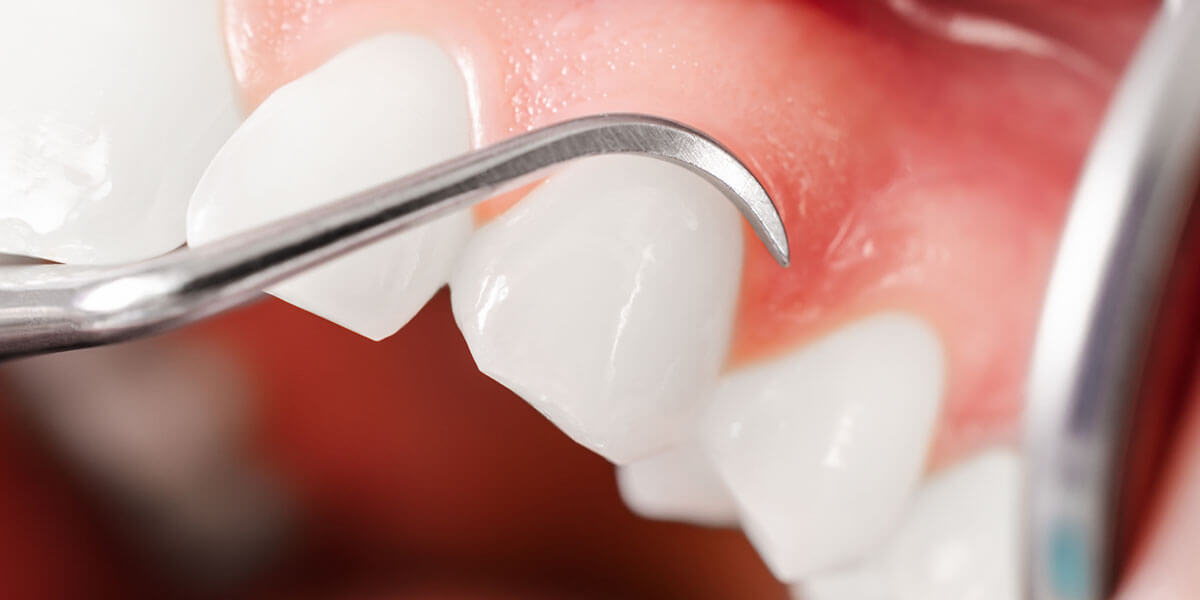Scaling and Root Planing in Middletown & New Britain, CT

Scaling and root planing is a non-surgical procedure used to treat gum disease.
Gums play a vital part in your oral health - and your body’s overall health, as well. Although gum disease is most often preventable, it’s very common. But with periodontal therapy, your dental team can treat gum disease before it becomes a more serious health problem.
Signs of Gum Disease
Periodontal disease begins when plaque toxins attack the soft tissue that surrounds your teeth, and embed in the gums, which causes infection and the formation of pockets. These pockets deepen over time, and without treatment, infection can, too, which causes jawbone recession, tooth instability, and bone loss.
But gingivitis, the first stage of gum disease, can be reversed without any surgical intervention. Seeking rapid treatment is important.
Signs of gingivitis include:
- Red, swollen gums
- Gums bleed during or after brushing
- Receding gums
- Chronic bad breath
- Loose teeth
- Sensitive teeth
- Pockets develop between teeth and gums
Treating Gum Disease
Mild and moderate gum disease can be treated with scaling and root planing. It works by cleaning the plaque from the surface of the tooth’s root below the gums, denying bacteria a rough surface to adhere to.
During the scaling process, specialized dental instruments are used to remove dental plaque and calculus from beneath the gums. Planing is the procedure used to smooth the tooth’s root after the scaling process. Root planing helps the gums heal and reattach themselves to a cleaner and smoother root surface.
If you’re ready to learn more about scaling and root planing, or to schedule an appointment, reach out to us today!
Frequently Asked Questions About Scaling and Root Planing
How do you prevent gum disease from occurring?
Periodontal disease can be prevented through proper dental care, and treated at each stage. You can help to prevent periodontal disease by seeing your dentist twice annually, flossing regularly, brushing your teeth twice a day, and using mouthwash. You can also limit the amount of sugar you have in your diet, and avoid tobacco.
What causes gum disease?
Most often, periodontal, or gum disease, occurs because of poor dental hygiene, smoking, or a diet that contains an excessive amount of sugar. But family history, fluctuations in hormones such as those caused by pregnancy, and chronic illnesses, as well as medication, can all cause the risk of periodontal disease.
How can gum grafting help with periodontitis?
If necessary, when the gums have receded away from the teeth due to gum disease, gum grafting can replace lost gum tissue. Gum recession is most commonly the result of periodontal disease. There are important oral health and medical reasons to perform this procedure, which is used to control and prevent any additional gum recession and subsequent damage to surrounding teeth and bone structure.
